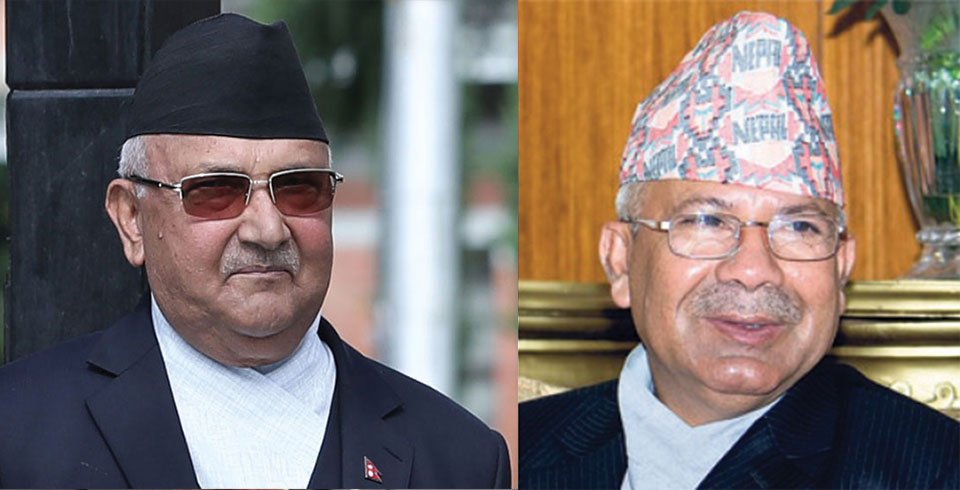The writing for the Nepal Communist Party (NCP) had been on the wall since its formation in 2018. After a resounding electoral victory for their communist alliance, the KP Oli-led CPN-UML had completed the merger process with Pushpa Kamal Dahal-led CPN (Maoist Center) with the sole intent of, as it turned out, dividing the spoils between them. The understanding was that Oli would lead the government for two and half years after which he would make way for Dahal. Predictably, Oli refused to step down halfway into his tenure. Predictably, the NCP split.
Now it is the turn of the CPN-UML to undergo a formal spilt following the expulsion of 11 senior leaders by the Oli-led UML standing committee. Among those expelled are heavyweights such as Madhav Kumar Nepal and Jhalanath Khanal, two ex-PMs. They were booted out after they petitioned with President Bidya Devi Bhandari to name Nepali Congress’ Sher Bahadur Deuba as the new prime minister. Once again, ideological differences had nothing to do with the latest fissure in the ruling party. It was an all-out personality clash.
The Nepali communist movement has been turbulent since the formation of the Communist Party of Nepal (CPN) in 1949 under Pushpa Lal Shrestha. But while earlier fissures in the communist movement were at least partly ideological—for instance, in 1962 the CPN split over the debate of whether communists and royals could work together—in recent times, such fissures (and later fusions) have largely, if not exclusively, been guided by personal calculations.
Then there is the question of whether any of Nepal’s big, nominally communist forces are in fact communist. Of late, it is hard to distinguish the Nepali Congress from the CPN-UML or CPN (Maoist Center). Though all three swear by democratic socialism, in reality all of them support crony capitalism. Communist candidates are the biggest spenders in electoral campaigns and control big chunks of the economy. Their commitment to the welfare state is wafer-thin. Without greater ideological clarity and walking-the-communist-talk, Nepali communist movement faces an existential crisis.










